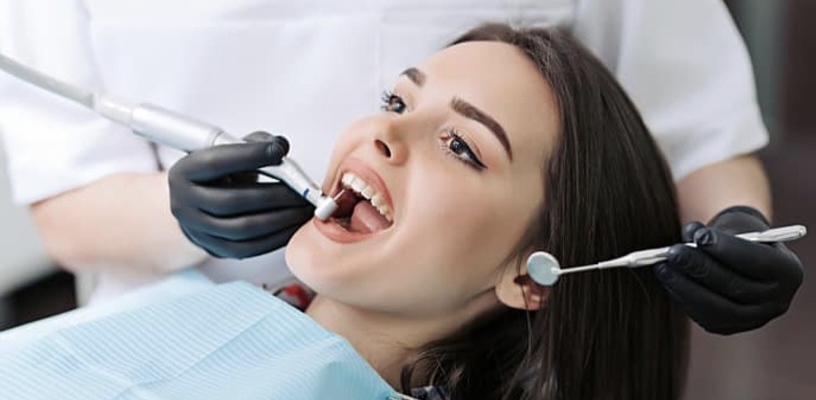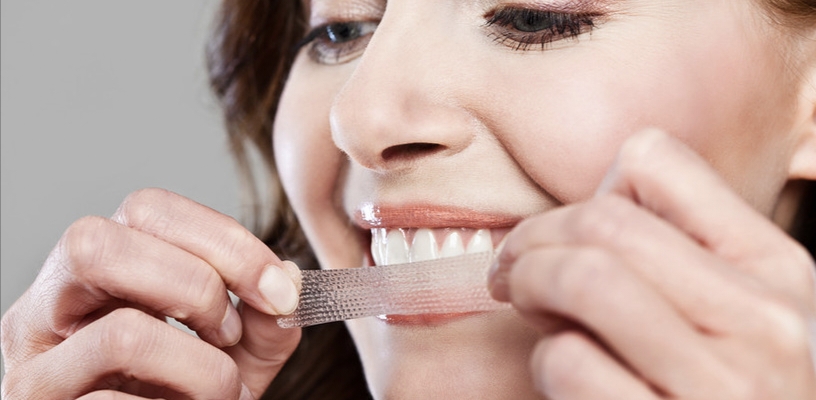
Understanding Sedation Dentistry: A Comprehensive Overview
-
What is sedation dentistry?
Sedation dentistry refers to the use of sedative medications that help the patients relax while dental procedures are on. It is used for people who go through dental fear, anxiety, and discomfort. It makes the experience less stressful and more comfortable.
-
Benefits of sedation dentistry
Some benefits of sedation dentistry are:
-
Anxiety Reduction: Sedation dentistry helps in reducing dental fear of the patients to ensure a stress-free experience.
-
Pain Management: Sedation helps to reduce pain and minimizes the need for using local anesthesia.
-
Time Efficiency: With the use of deeper sedation, patients can go longer treatments in one dental visit.
-
Fewer Gag Reflexes: Sometimes, sedation helps in reducing the gag reflex which allows the dentist to easily work.
-
Improved Comfort: Sedation also helps to make you more comfortable for patients who have sensitive teeth or severe dental problems.
-
Memory Loss: In various cases, patients do not remember the procedure which makes it less painful and traumatic.
-
Common myths and misconceptions
-
Myth: Sedation dentistry is dangerous.
Sedation is safe when it is done by an experienced dentist who specializes in sedation dentistry as they carefully monitor patients in the procedure.
-
Myth: Sedation dentistry is only for people with extreme anxiety.
Sedation dentistry is not only beneficial for people who have dental phobia but also for anyone who want to make dental procedure comfortable.
-
Myth: Sedation means you'll be unconscious.
Sedation does not signify that a person is completely unconscious. There are various forms of sedation that may leave patients awake. However, they feel relaxed with deep sedation in complicated cases.
-
Myth: Sedation dentistry is expensive.
The cost of sedation dentistry varies based on the type of sedation. Many patients find it to be a good investment relating to their comfort level and in reducing their anxiety. Some insurance plan may also cover sedation.
-
Myth: I’ll feel groggy for days after sedation.
Many people who use lighter forms such as nitrous oxide which may recover quickly after sedation. The effects may also wear off within hours.
Exploring types of sedation dentistry
Sedation dentistry provides various techniques that may help patients to become more relaxed throughout the procedure. Some common types of sedation are as follows:
1. Nitrous Oxide (Laughing Gas)
Nitrous oxide is a colorless and odorless gas that is inhaled by using a mask which is placed over the nose. The gas helps to minimize the anxiety of the patient thereby providing a more calming effect. It is beneficial as patients remain conscious, responsive, and have minimum side-effects. Nitrous oxide is ideal for mild anxiety.
2. Oral Conscious Sedation
This is a form of sedation that is taken in the form of a liquid or a pill through mouth before the appointment. This helps the patient remain detached from the surrounding and feel calm. Some benefits of oral conscious sedation is as it does not require needles and is relatively easy to administer. It is deeper sedation than nitrous oxide. It is good for people who are experiencing moderate anxiety and for procedures such as root canal treatment or dental crown procedures.
3. Intravenous (IV) Sedation
Sedative medications are delivered directly in the blood stream by using an intravenous in the hand or arm. The dosage can be adjusted during the procedure according to the patient. Intravenous sedation may be beneficial for the patients who want immediate effects. It may be beneficial for complex procedures such as dental implant procedures.
4. General Anesthesia
It is a deeper form of sedation when the patient feels unconscious while the procedure is going on. Through medication, patient is put to sleep and the dentist needs to monitor all the signs throughout the procedure. It is ideal for lengthy procedures, extensive surgeries, and patients who experience severe anxiety.
Every sedation type may provide their own level of consciousness and relaxation. It depends on the patient’s anxiety whether it may be beneficial for you or not.
-
Comparing the effects and suitability of each type
|
Type of sedation |
Effect |
Suitability |
|
Nitrous oxide (Laughing gas) |
Mild sedation; reduces anxiety, keeps you awake and aware but relaxed |
Ideal for mild anxiety, short, non-invasive procedures (e.g., fillings, cleanings) |
|
Oral conscious sedation |
Stronger sedation than nitrous oxide; drowsiness and reduced memory of the procedure |
Suitable for moderate anxiety or slightly longer procedures, such as root canals or crowns |
|
IV sedation |
Deeper sedation; patient may drift in and out of consciousness, but remains responsive |
Best for severe anxiety, lengthy or more invasive procedures, like tooth extractions or implants |
|
General anesthesia |
Complete loss of consciousness; no awareness or memory of the procedure |
Ideal for major dental surgeries, high anxiety, or patients with special needs who cannot remain still or cooperate |
-
Cost analysis of sedation dentistry
Many factors are responsible for influencing the cost of sedation dentistry that varies based on sedation type, complexity of procedure, and other factors.
-
What influences sedation dentistry costs?
-
Type of sedation
The complexity of sedation type may affect the pricing such as more invasive sedative forms such as IV sedation and general anesthesia will be more expensive owing to additional resources.
-
Procedure duration and complexity
The dental procedures that require surgeries require more sedation that can increase the costs. If the level of difficulty is more, the sedation will take longer time.
-
Dentist's experience and location
If you consult a highly experienced dentist, it will cost you more. Specialists such as oral surgeons may charge more for sedation in comparison to others.
-
Facility fees
Some sedation types such as IV sedation and general anesthesia may require equipment that may cost you higher costs. Some factors that increase the cost are operating room, staff, and anesthesia monitoring.
2. Average cost by sedation type
The cost of sedation may increase due to sedation method and the particulars of the procedure.
-
Nitrous oxide cost range: The average cost of nitrous oxide may range between $50 and $100 for every session.
-
Oral sedation cost range: The average cost of oral sedation may range between $150 and $800 depending on the dosage and medication.
-
IV sedation cost range: The average cost of oral sedation may range between $500 and $1000 for every hour.
-
General anesthesia cost range: The average cost of general anesthesia may range between $200 and $3,500 that may vary depending on factors such as length, location, and your insurance plan.
3. Cost comparisons: Making informed choices
If the cost is the concern, nitrous oxide is the budget-friendly option. Oral sedation is a good option for moderate anxiety and has reasonable cost. IV sedation or general anesthesia may be good options for complex procedures.
Insurance and financing for sedation dentistry
Navigating the costs of sedation dentistry can be challenging, but understanding insurance coverage and financing options can make the process easier. Here’s an overview of what you need to know:
-
Sedation dentistry insurance coverage
Sedation dentistry may or may not be covered by dental insurance. However, in some situations insurance may cover the costs. Insurance may cover sedation in case of medical necessity such as patients experiencing severe anxiety or have special needs, invasive procedures, and if you are consulting a dentist out of insurance network.
Insurance plans may not cover sedation in cases of cosmetic procedures such as veneers or teeth whitening and voluntary sedation for anxiety.
-
Financing options and payment plans
There may be cases where insurance may not cover sedation and if the need arises for paying out-of-pocket costs, then there are various payment plans.
Some financing options are as follows:
-
Dental offices providing in-house payment plans
-
Third-party financing companies such as CareCredit may provide dental and medical financing plans that have zero or low interest rates.
-
You can choose to have health savings accounts (HSA) or flexible spending accounts (FSA) that may cover the cost of sedation dentistry.
-
Patients may use credit card with 0% introductory APR. However, before choosing any financing option, you may keep in mind the interest rates.
Some payment plans may include the following:
-
Down payment: This is a payment plan in which dentists may need a specific sedation portion of dental procedure. The remaining balance will be paid in installment.
-
Payment deferrals: In this plan, the dental offices may permit you to delay your payments for sometime after the procedure. It can be helpful if someone is waiting for extra time to get financing or the insurance reimbursement.
-
Tips for negotiating costs with your dentist
Some tips that may help you to make the sedation dentistry affordable are as follows:
1. Ask about Discounts or Promotions: Some dental offices may provide discounts or promotions for particular procedures. Therefore, you must ask your dentist whether they are providing any discounts or not.
2. Inquire About Payment Plan Options: Ask your dentist if they provide in-house payment or financing plans. Many offices may create some payment schedule that may fit your budget.
3. Prioritize Procedures: If your dentist has suggested you sedation for various purposes, ask them to break the treatments with time. It can allow you to manage costs.
4. Explore Alternatives: If you find sedation costs are more, you may ask your dentist to suggest other ways that will help to manage your dental anxiety such as local anesthesia.
5. Shop Around: Before choosing a dentist, you may compare the prices from different dental providers.
6. Consider Your Long-Term Dental Care: Sedation may be expensive, but it may make complex procedures easy and comfortable.
Choosing the right sedation dentist
It is a big decision to choose the right sedation dentist and this is special for those who have fear and anxiety for dental procedures. Some factors to consider while choosing a sedation dentist are as follows:
-
Evaluating Qualifications and certifications
You must choose a dentist who has license to practice in your state and check them for sedation training or the certification in sedation dentistry and what sedation type they provide.
-
Patient reviews and recommendations
You can check online reviews from other patients or websites like Yelp or Google reviews that may provide you an idea of reputation of dentist. You can also ask your friends or family as they are reliable source of information.
-
Consultation: What to expect
In the initial consultation, a dentist may ask about your dental health and discuss about your preferences for sedation. They may also judge about your anxiety level and other factors. You can also ask about your sedation type, side-effects, and how it will work.
-
Questions to ask before making a decision
Some questions that you can ask sedation dentist before choosing them are as follows:
-
What types of sedation do you offer?
-
What are your qualifications and experience with sedation dentistry?
-
What will happen during the procedure?
-
What is the recovery process after sedation?
-
How do you handle emergency situations related to sedation?
-
What is the cost of sedation, and does your office accept insurance that covers it?
Common questions and considerations
-
Is sedation dentistry worth the cost?
The short answer is yes. Sedation dentistry is one of the most cost-effective strategies in comparison to general anesthesia. The overall pricing may be different according to the sedation type chosen and the complexity of the dental procedure.
-
What are the risks and safety measures?
Some risks of sedation dentistry are over-sedation, nausea, cardiovascular reactions, and allergic reactions. To minimize the risks, the dentist will perform a thorough evaluation, and will monitor all the signs throughout the treatment. Some safety measures that you can adapt to ensure safety from sedation are recovery monitoring and follow the post-treatment instructions.
Encouragement to consulting professionals for personalized advice
If you are planning to consider sedation dentistry, you must consult a professional who can analyze patient’s needs. A dentist who is experienced will provide you advice on the basis of your anxiety levels, medical history, and particular dental procedure you are choosing.
A dentist will help you to not only understand the best sedation options but will also look for your safety and comfort throughout the entire process. An informed decision will ensure the best possible outcome for your dental procedure.




